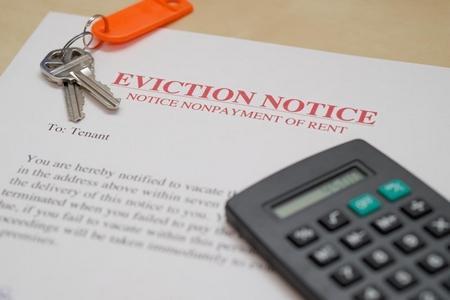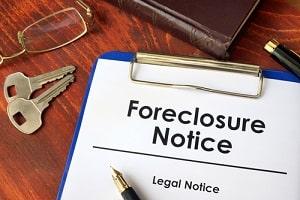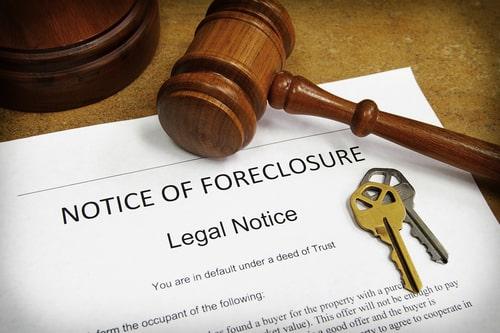1512 Artaius Parkway, Suite 300,
Libertyville, IL 60048
Call for a FREE Phone Consultation
847-549-0000
Video Consultations Also Available
 Spanish
SpanishServing Clients Across 7 Illinois Locations
Recent Blog Posts
What to Consider When Evicting a Commercial Tenant in Illinois
 Commercial landlord-tenant relationships can often be mutually beneficial, but tensions caused by adverse goals can arise from time to time. If you are a commercial landlord in the Lake County area, there are several things to consider when deciding whether or not to evict a commercial tenant. In any event, consult an experienced commercial real estate attorney before taking eviction action. It will save you time, energy, and money in the long run.
Commercial landlord-tenant relationships can often be mutually beneficial, but tensions caused by adverse goals can arise from time to time. If you are a commercial landlord in the Lake County area, there are several things to consider when deciding whether or not to evict a commercial tenant. In any event, consult an experienced commercial real estate attorney before taking eviction action. It will save you time, energy, and money in the long run.
Lease Modification and Changes to Rental Agreements
If you find yourself at odds with a commercial tenant, stop to consider whether a lease modification or change to a rental agreement could solve your issue. If a tenant is continuing to pay rent but wants to adjust the space used or other conditions of the agreement, then negotiating and modifying your lease may be more profitable than trying to find a new tenant for the space. When the goals of the landlord and tenant diverge, there is no reason the relationship cannot survive if an experienced attorney steps in to guide the negotiations.
How Can I Defend Against a Home Foreclosure in Illinois?
 Falling behind on your mortgage payments is stressful for anyone. The thought of foreclosure looming is not a situation that any homeowner chooses to be in. The foreclosure process is handled through the court system, which means you can fight it. There are legal defenses that can be presented to help you keep your home. However, it is a complicated process. That is why you need an Illinois foreclosure defense attorney to represent you. Depending on your circumstances, one or more defenses may be available to you. Below are some common arguments that may be applicable to your foreclosure case.
Falling behind on your mortgage payments is stressful for anyone. The thought of foreclosure looming is not a situation that any homeowner chooses to be in. The foreclosure process is handled through the court system, which means you can fight it. There are legal defenses that can be presented to help you keep your home. However, it is a complicated process. That is why you need an Illinois foreclosure defense attorney to represent you. Depending on your circumstances, one or more defenses may be available to you. Below are some common arguments that may be applicable to your foreclosure case.
Statute of Limitations Has Passed
Has it been a long time since you stopped making payments to when the mortgage lender started the foreclosure? There is a chance the statute of limitations has passed. Your attorney will be able to tell you whether the deadline has passed or not by looking further into the details of your case.
Why Do I Need an Attorney for Buying a House in Illinois?
 Some states mandate that home buyers hire an attorney for the real estate closing while others stay silent on the matter. Illinois is one of the states that does require you to have a lawyer review your purchase agreement before finalizing your home purchase. Buying a home is a significant purchase, probably one of the largest purchases you will make in your lifetime. However, that is not the only reason you should consider using a Lake County real estate attorney. Would you not want legal guidance to make sure your rights and investment are protected?
Some states mandate that home buyers hire an attorney for the real estate closing while others stay silent on the matter. Illinois is one of the states that does require you to have a lawyer review your purchase agreement before finalizing your home purchase. Buying a home is a significant purchase, probably one of the largest purchases you will make in your lifetime. However, that is not the only reason you should consider using a Lake County real estate attorney. Would you not want legal guidance to make sure your rights and investment are protected?
At Newland & Newland, LLP, we have decades of experience helping Illinois home buyers with their real estate needs. We offer top-quality legal services to Lake County residents and the north and northwest Chicago suburbs. If you are looking to buy a home in one of these areas, do not wait until the purchase is nearly complete before hiring an attorney. Let our legal team help guide you through the entire process so you can be assured that there are no legal issues with your dream home.
Can I Be Responsible for Unpaid Assessments When I Buy a Condo?
 When purchasing a condominium, you need to be aware of the various rules and regulations governing the condominium association. For example, if you fail to pay required condominium assessments or common expenses, the association can foreclose on your unit. And if you happened to be the person who buys a condominium at a foreclosure sale, you may also find yourself on the hook for the previous owner's unpaid expenses.
When purchasing a condominium, you need to be aware of the various rules and regulations governing the condominium association. For example, if you fail to pay required condominium assessments or common expenses, the association can foreclose on your unit. And if you happened to be the person who buys a condominium at a foreclosure sale, you may also find yourself on the hook for the previous owner's unpaid expenses.
Appellate Court Determines Who is Responsible for Previous Costs
A recent case from Cook County, Shannon Court Condominium Association v. Armada Express, Inc., helps to illustrate how these issues work in practice. This case involves a condo building in Streamwood, Illinois, where the co-owners of a particular unit failed to pay over $5,000 in condo assessments. The condo association, Shannon Court, then filed a foreclosure action and obtained a final judgment evicting the owners in January 2018.
The Role of a “Notice of Sale” in Illinois Foreclosure Proceedings

Illinois foreclosure law requires a judge to follow a number of steps before approving or confirming a property sale. One of these steps is to ensure that the mortgage lender or their representative has published a proper notice of the sale. Even in the Internet age, the law requires publication of this notice via newspaper advertisements. More precisely, the notice of sale must be published for three consecutive weeks in a “newspaper circulated to the general public in the county in which the real estate is located.” In counties with more than 3 million people–i.e., Cook County–the notice must be published in the township where the property is located.
Not All Defects Warrant a Reverse of Sale
An Illinois appellate court recently rejected a homeowner's attempt to undo the judicial sale of their property due to a technical failure to follow the notice requirement. The lender filed a complaint to foreclose on the mortgage in January 2010. The judgment itself was entered more than eight years later, in October 2018. In July 2019, the lender filed a notice of sale, which was published in the Chicago Daily Law Bulletin and the “Glenview Announcements,” the latter of which is published by the Chicago Tribune.
How Can I Gain Legal Guardianship of a Disabled Adult in Illinois?
 When an adult has a severe disability, he or she may be unable to make competent decisions on his or her own. The disability may leave him or her unable to function independently or stay out of harm’s way. If your loved one is disabled and you worry that he or she may not be capable of making responsible, safe decisions, you may be interested in learning about adult guardianships. Being someone’s guardian is a major responsibility that must be granted by the court. An experienced estate planning attorney can help you pursue guardianship of a disabled adult.
When an adult has a severe disability, he or she may be unable to make competent decisions on his or her own. The disability may leave him or her unable to function independently or stay out of harm’s way. If your loved one is disabled and you worry that he or she may not be capable of making responsible, safe decisions, you may be interested in learning about adult guardianships. Being someone’s guardian is a major responsibility that must be granted by the court. An experienced estate planning attorney can help you pursue guardianship of a disabled adult.
When Can Someone Become a Disabled Person’s Guardian?
A guardian is a person or an institution that is tasked with managing a disabled person’s affairs. Illinois courts only appoint someone to be a guardian if the individual has established that they will act in the best interests of the disabled person or “ward.” Disabilities that qualify a person for guardianship include physical disabilities, developmental disabilities, mental illnesses, and mental decline from conditions such as dementia or Alzheimer’s Disease. Illinois law also allows a guardian to be appointed if a person suffers from a severe gambling addiction or substance abuse problem. In order for the court to award guardianship of a disabled adult, the person’s disability must be severe enough to prevent the person from making and expressing sensible decisions.
What is Involved in a Judicial Foreclosure?
 Foreclosure is the legal process during which a home is sold to settle an unpaid mortgage debt. When a homeowner falls behind on his or her mortgage payments, the home may go into foreclosure, and the mortgage lender may seize the property. In Illinois, all foreclosures are “judicial” which means that the process is carried out through the court system. In other states, non-judicial foreclosures may be an option, but Illinois law only permits judicial foreclosures. The legal process of foreclosing on a home can take several months to several years in Illinois. If you are concerned that your home may go into foreclosure, talk to an experienced foreclosure attorney so that you can explore potential defenses.
Foreclosure is the legal process during which a home is sold to settle an unpaid mortgage debt. When a homeowner falls behind on his or her mortgage payments, the home may go into foreclosure, and the mortgage lender may seize the property. In Illinois, all foreclosures are “judicial” which means that the process is carried out through the court system. In other states, non-judicial foreclosures may be an option, but Illinois law only permits judicial foreclosures. The legal process of foreclosing on a home can take several months to several years in Illinois. If you are concerned that your home may go into foreclosure, talk to an experienced foreclosure attorney so that you can explore potential defenses.
When Does a Mortgage Servicer Initiate a Foreclosure?
Life can be unpredictable to say the least. When an unexpected illness, disability, job loss, or other financial hardship occurs, a homeowner may fall behind on his or her mortgage payments. A mortgage servicer cannot initiate foreclosure procedures simply because a borrower has missed one or two payments. However, when a borrower is over 120 days delinquent on their mortgage loan payments, the servicer may begin the foreclosure. A homeowner who has not been making payments will receive a “breach letter” that notifies him or her that he or she is in default on the mortgage loan. At this point, the homeowner should speak to a lawyer and start exploring alternatives to foreclosure such as a loan modification or short sale. If nothing is done to remedy the default, the servicer will officially begin foreclosure proceedings
Do I Really Need a Lawyer When Buying a New Home?
 As the country slowly begins to open back up in the wake of the coronavirus outbreak, many individuals and families will soon be in the market for a new home. In fact, the spring season is usually one of the busiest times of the year for the real estate industry, and this year is not likely to be an exception.
As the country slowly begins to open back up in the wake of the coronavirus outbreak, many individuals and families will soon be in the market for a new home. In fact, the spring season is usually one of the busiest times of the year for the real estate industry, and this year is not likely to be an exception.
It is not uncommon for a person to buy a home without the help of a real estate attorney. However, there is value in hiring one to help with your transaction. This is especially true if you run into legal issues along the way. It is important to understand how a real estate attorney can help and when you should absolutely have one on your side.
When a Real Estate Attorney is Necessary
If the property you are purchasing has unique issues, such as a pool, a fence, or other structures that could cause problems with local zoning and building codes, an attorney can help to ensure everything was built according to code and with the proper permits. An attorney can also help ensure that property lines have been adhered to when structures are near property lines. You should certainly hire an attorney if you have any plans to build or expand on the existing structures. Doing so can help ensure that any plans for the house are in compliance with all applicable local zoning laws.
Illinois Lawmakers Considering Emergency Rent and Mortgage Relief Bill
 As the nation has struggled financially due to the shutdown caused by the COVID-19 outbreak, the federal government placed a freeze on foreclosure and eviction proceedings by Fannie Mae, Freddie Mac, and other government agencies. Many of the country’s leading mortgage lenders and banks also announced programs designed to assist homeowners facing difficulties making their mortgage payments.
As the nation has struggled financially due to the shutdown caused by the COVID-19 outbreak, the federal government placed a freeze on foreclosure and eviction proceedings by Fannie Mae, Freddie Mac, and other government agencies. Many of the country’s leading mortgage lenders and banks also announced programs designed to assist homeowners facing difficulties making their mortgage payments.
The specifics of the programs offered by the various lenders can vary widely, as not all institutions can afford to go very long without payments from their borrowers. Such inconsistencies have left many homeowners still worried about what will happen in the next few weeks and months. With this in mind, lawmakers in Illinois are working to pass a bill that would offer relief to renters, homeowners, and lenders before the new month begins.
Why Would My Loan Modification Request Be Denied?
 When you are facing financial distress, you might explore options like modifying your mortgage loan terms or negotiating with your lender to avoid foreclosure. Foreclosure can have a substantial impact on your current and future credit, not to mention the loss of your home. If you are struggling to make your mortgage payments, a loan modification request might be the best way for you to get your debt under control.
When you are facing financial distress, you might explore options like modifying your mortgage loan terms or negotiating with your lender to avoid foreclosure. Foreclosure can have a substantial impact on your current and future credit, not to mention the loss of your home. If you are struggling to make your mortgage payments, a loan modification request might be the best way for you to get your debt under control.
Requesting a loan modification does not always result in an approval. Your request can be denied for a variety of reasons. In many of these cases, it is possible to resubmit the request and potentially have it approved with additional information provided. If you are facing this situation, speak with an experienced attorney about your options.
 Stop Foreclosure
Stop Foreclosure
















